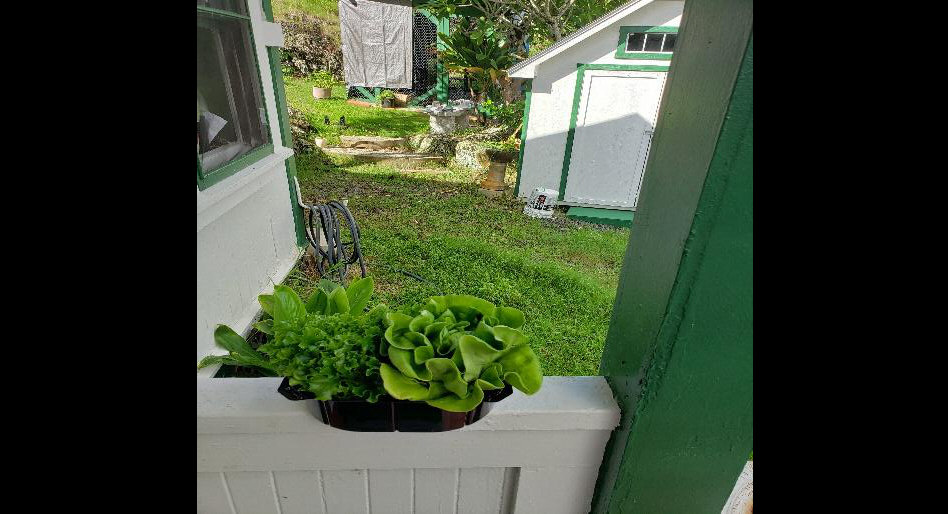Gates, Dreams, and Feral Chickens

Suddenly, I awoke from a dream:
I look through my sheer living room curtains. Barry’s BMW and my Hyundai sit side by side in the darkened garage. The streetlight shining in front of our house illuminates a man between our cars walking toward our house. He doesn’t look threatening. I don’t know him. I’d recognize him if I spotted him.
I suspected the dream was caused by my fear that intruders could easily enter our property past the 300-pound metal gate with broken wheels. However, part of me worried the dream was an omen of things to come.
My handyman, Johnny, contributed to my fear. He urged us to keep reminding the owner to install the electric gate she’d promised us. “Right now, any thief could waltz right in,” Johnny warned.
I wasn’t strong enough to pull the gate open after we closed it, so we left it open. I hoped that our home at the end of a cul-de-sac, surrounded by neighbors’ homes densely packed with people, was an unlikely target for a burglar.
“This is a tough neighborhood,” Johnny cautioned, “You’re defenseless without a lockable gate.”
During daylight hours, I didn’t worry about human intruders. Mainly, I wanted to keep feral chickens from waddling in from the street, followed closely by half a dozen tennis-ball sized chicks. It hurt me to see my three outdoor cats meowing plaintively at the sight of the chicks they couldn’t chase, enclosed as they were in the large Catio I built for them when we moved.

Mama Hen would squawk like crazy and take a dust bath in my garden. She and her family ignored the water I shot at them from the hose. Waving my arms, I would run toward the birds. Mama would escape through our garage and her chicks would run through holes in the neighbor’s chicken wire fence.
When darkness fell and the streetlight cast long shadows into the garage, I peered outside through the sheer curtains covering the windows of the living room. Upon waking from the dream, I stumbled back to the living room and peered outside. The garage was empty except for our cars.
Working with my dreams had taught me what gates mean for me. When the gate is open, it’s my entryway to positive change. When it’s closed, I’m somehow shutting myself off. I didn’t want to shut myself off. Was the reason I was worrying about keeping the gate open because it was a precognitive dream?
How to Tell if a Dream is Precognitive
Dream experts say precognitive dreams are unusually clear and vivid. Unlike “ordinary” dreams, they’re not related to previous events, don’t express anxiety, and don’t use personal symbolism. When they warn of coming danger or emergency, they ignite strong emotions.
I decided that my man-in-the-garage dream didn’t appear to be a precognitive dream because it did none of the above. It seemed to be related to my fear. I sure hoped I was right about that.
Why Do Precognitive Dreams Happen?
When I worked for a military fire department in the mid-Eighties, I received a Secret Clearance so I could handle the classified material I had to process in my job. “Need to know,” the military called it. I think Spirit sends us precognitive dreams when we have a need to know.
Like I needed to know how to help solve a crime when I worked as a dispatcher with two bachelor buddies. On the night my steady boyfriend moved out, I had an unusually clear and vivid dream. It wasn’t until seven months later, after a murder occurred, that The Dream pieced the pieces of the crime puzzle seamlessly together. The Dream helped the homicide detective and I solve the motive for a murder (as revealed in my memoir Angel Hero, Murder in Hawai’i, A True Story). The Dream, in vivid color, was so startling it pulled me out of a deep sleep and made me bolt up in bed. The feeling was one of pure ecstasy. A feeling quality that the dream about the intruder lacked.
Just an Ordinary Dream?
As is my habit, I scribbled the man-in-the-garage dream down. “Should we spring for a security alarm system?” I asked Barry. I’d already located one with a motion detector for $15 a month that included a camera to watch the gate.
“Nah.” Unlike me, Barry refuses to operate out of fear. “No need to worry, Lizzy.”
A muscular ex-cop who lives across the street told me the same thing. Shady characters used to hang out in a drug house down the street. Houses got broken into then, but this is now a safe neighborhood.
How do we figure out what a dream signifies?
According to Edgar Cayce, a famous seer who talked about dreams, the first thing we should do if we want to investigate our dreams is to record them daily. Make it a habit.
That’s why I write in a journal I keep beside my bed, forcing myself awake so I can capture dreams before they dissolve like mist in sunlight. I also follow Cayce’s suggestion to read the dream over, see if I can find repeated symbols, and figure out what they mean to me.
For example, when I lose my purse in a dream, I know it symbolizes that I’m feeling like I’m losing my identity. I often dreamed of losing purses when Barry and I lived in a house where his hostile siblings held sway. Those nightmares ended once we moved into our place here.
Cayce describes our dreams as doorways into spiritual realities. He says we need to realize that we are souls, encased at the moment in physical bodies, united with every other soul.
“You are, mentally and physically, what you eat and what you think,” Cayce said. He suggests we keep our thoughts positive by speaking and feeling positive affirmations.
Our Open Gate

Last week, as I carried a bag of trash to a large trash can beside the gate, I spotted three boys who appeared to be about eight years old standing together on the street, looking longingly into our garage. I smiled and waved. A few minutes later, a squawking sound caught my attention. The boys were chasing a bevy of half-grown chickens, who raced between Barry’s and my car into our garage.
I ran at the chicks, my arms flapping, yelling, “Get out of here!”
Their nails frantically clicking on the garage floor, the chicks had nowhere to go but under my car. They raced out the other side and into our grassy yard.
The boys only hesitated for a moment. Then they raced after the chickens. One young man had the grace to say, “Sorry about this!” before joining in the pursuit.
Another boy said, “I’ve got to find something to catch them with.”
The chicks reached the chicken-wire fence separating our yard from the neighbor’s.
“You won’t be able to catch them,” I said. “They’re going to escape through the fence.”
The chickens squeezed their tiny bodies through the equally tiny openings in the chicken wire fence.
The boys looked through the fence as the chicks disappeared into the yard next door. Seeing that the house was completely surrounded by a fence, they slumped, defeated.
“That’s a spooky house,” the want-to-be-chicken-trapper boy told me.
Touched by him confiding in me, I asked, “Why is it spooky?”
The boy thought about it. “Too quiet,” he said.
I replied, “A very old lady lives there alone.” At least, that’s what Johnny had told me.
The boys waved and ran away, seeking other adventures. I waved, hoping the boys would come back, glad that our gate had been open for them.
I’m now affirming and feeling that, gate or no gate, Barry and I live happily and safely in our new home in this cool breezy neighborhood.

Lizbeth Hartz is the author of the true crime, true love memoir Angel Hero, Murder in Hawaii, A True Story, which this blog post is partly based on. Buy it on Amazon or sign up to read the 1st chapter free.